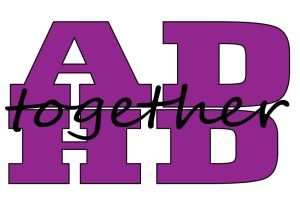A personal story of losing and finding my wedding ring
What is object permanence?
Object permanence is the ability to understand that objects exist even when they are not in sight. It is a cognitive skill that develops in early childhood, usually around 8 to 12 months of age. Children with object permanence can remember and look for objects that are hidden or moved, and they can recognize familiar objects in different contexts.
How does ADHD affect object permanence?
People with ADHD may have difficulties with object permanence, especially when they are distracted, stressed, or overwhelmed. They may forget about objects that are not in their immediate attention, or they may lose track of where they put them. This can lead to frustration, anxiety, and embarrassment, as well as problems with organization, planning, and time management.
One of the reasons why ADHD affects object permanence is that people with ADHD have trouble with working memory, which is the ability to hold and manipulate information in the mind. Working memory helps us to remember and use information for various tasks, such as following instructions, solving problems, and recalling facts. Working memory also helps us to keep track of objects and their locations, even when we are not looking at them.
Another reason why ADHD affects object permanence is that people with ADHD have trouble with executive functions, which are the mental processes that help us to control our thoughts, emotions, and actions. Executive functions help us to focus, prioritize, organize, and regulate our impulses.
this also help us to switch our attention between different stimuli, and to maintain a mental representation of our goals and plans. Helping us remember and use object permanence in everyday situations is also a purpose of executive functions.
A personal story of losing and finding my wedding ring
I have ADHD, and I struggle with object permanence. One day, I took off my wedding ring to wash my hands. I knew that I needed to put it somewhere safe, which I thought I did. But somehow, it fell off the table that I had it on. Days went by before I realized that I had not seen my ring for a while. In my mind, the ring did not exist for that time. I had no idea where it was, or even if I still had it.
I finally found my ring a couple of weeks later. It fell on the floor and was under a pile of clothes that I had not checked. I was so relieved and happy. I put my ring back on.
What can I do to improve my object permanence?
There are some strategies that I use to improve my object permanence and to avoid losing or forgetting things. Here are some of them:
- Keep a routine and a system for where I put my things. Have a designated place for my keys, wallet, phone, glasses, and other important items. Always put them back in the same place after I use them.
- Use reminders and cues to help me remember where things are put. Write notes, set alarms, or use apps to remind me of what I need to do or where I need to go. Also use labels, stickers, or colors to mark my things and make them more visible.
- Check and double-check before I leave a place or a situation. Make sure that I have everything that I need, and that I have not left anything behind. Also ask someone else to help me check, if possible.
- Ask for help and support when I need it. Do not hesitate to ask someone if they have seen my things, or if they can help me find them. Also tell friends and family about my ADHD and how it affects my object permanence. Ask them to be patient and understanding with me, and to help me remember and keep track of my things.
Conclusion
Object permanence is a skill that I can improve with practice and patience. I know that I have ADHD, and that it makes me more prone to losing or forgetting things. But I also know that I can cope with it, and that it does not define me. I have learned to accept myself, and to appreciate the things that I have. I have also learned to communicate with my husband, and to trust in his love and support. I have realized that losing my ring was not the end of the world, but finding it was a wonderful gift.
